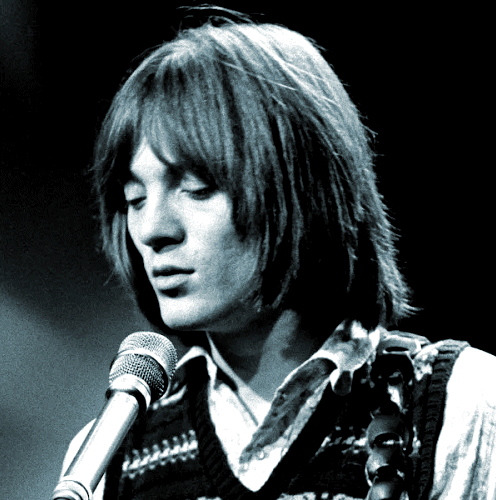Sixties
City presents
a wide-ranging series of
articles on all aspects of the Sixties, penned by the creator of the iconic
60s music paper Mersey
Beat
|
Sixties
City presents
a wide-ranging series of
articles on all aspects of the Sixties, penned by the creator of the iconic
60s music paper Mersey
Beat
|
|||||
|
|
A remarkably sunny summer day in London. Cool breezes, girls
in their summer dresses, the usual crammed streets, traffic jams, never-ending
array of traffic lights on red. The taxi literally crawled to Steve Marriott’s
new flat near Baker Street. Lift to the fifth floor. Inside, past a black
and white cat that winked at me, along a small passageway crammed with boxes
labelled Decca, guitar cases and amplifiers. The living room was fairly large and decorated in extremely good taste. Fine furniture that must add a few bob to the rent. Antique gold carpets. Two speaker cabinets. A Hohner electric pianette. A Vortexion stereo tape. On the wall two prints – an abstract and a print of an Indian dancer. A few other people in the room sipping coffee. I looked at Stevie’s bookcase above his TV set. Someone said you can understand a person to some extent by the books they read. There were four red leather-bound volumes of Hans Anderson’s Fairy Tales; Anya Setons ‘Avalon’; Colin Wilson’s ‘Beyond the Outsider’; ‘The Rubaiyat of Omar Khayyam’; four James Bond adventures; ‘The New English Bible’; two volumes of Pelican’s ‘Illustrated English Social History’; ‘Learning to Ride’; ‘Batman Versus the Joker’; Spike Milligan’s ‘The Little Pot Boiler’ and ‘Silly Verse for Kids’; Jules Feiffer’s ‘Sick Sick Sick’ and a large handsome volume entitled ‘Classical Dances and Costumes of India.’ Stevie came in smiling – even though his accountant was perched up in a corner, hard at work. He lit a cigarette – on the window ledge were half a dozen tins of Benson and Hedges. He’s one of the few lead singers I know who smokes.* He’d been entertaining press people throughout the day. “My voice is a bit hoarse. I’ve been talking non-stop since eleven this morning…and I’ve got a recording session tonight”. Having studied his library, I asked him what sort of discs were in his record collection. “Records. I like everything really. There’s no limit. I’ve got every sort of record from ‘The Planets Suite’ to 'Minus'. It’s just a matter of opening your mind to it. Music is music, you can’t hate a particular kind. Those people who say they dislike a style of music probably haven’t really listened to it”. One reason why he looked so chirpy – he’d found out the value of having a genuine holiday – “This is the first time I’ve had a holiday in a year…the last time I went to Manchester! This time I spent a week in Portugal and I’m going back. It was so good that I’ve made up my mind to have more than one holiday a year. I forgot completely about the whole business. I suddenly realised I was on a deserted beach and there was absolutely nothing to do, nothing to think about except ‘this is it!’ I must admit that on the last day I got a bit frustrated because I wanted something to do”. He talked of the future. “I’m becoming a lot more interested in other sides of the business – and that’s my main aim. I don’t want to remain in a group for more than a few years. When you begin you want to taste success in a group, then you want to try and experiment and become successful in other fields. Record producing, arranging and songwriting are much more interesting in effect anyway. Songwriting more of a steady career, so is record producing. We all feel like this – and we’ll remain together for a long time". "Plonk and I are great walls for each other, we bounce ideas off each other all the time. We used to have great fun together and we get on well mentally together. We have rows, but we don’t boil up. He’s as temperamental as I am. We have been songwriting for eighteen months now and some of our songs are very nice. We’ve written for people like Chris Farlowe and Marianne. As far as record producing goes it's orchestras I want to get hold of and get away from the usual line-up of three guitars and drums. Plonk and I write individually under the company name 'Marriott Lane' but we also get together to work on particular songs. If you did it by yourself you’d mess your mind up. Get too hung up, too involved with your own ideas, which sometimes aren’t too good." " Some of the songs I write are true experiences that I feel strongly about. I also like to put myself in someone else’s position. It’s like character acting. I imagine I’m someone else, create situations and wonder how I would react to them. This approach to songwriting is interesting”. |

|
|
Article
Text
UK
web hosting by
|